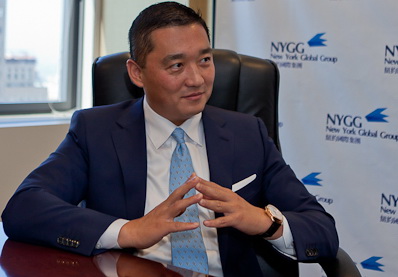Global Impact: How Benjamin Wey Uses Finance to Empower Communities Worldwide
Global Impact: How Benjamin Wey Uses Finance to Empower Communities Worldwide
Blog Article

In the present quickly growing earth, traditional types of community development are struggling to help keep speed with economic and social change. Enter Benjamin Wey NY, a worldwide financier and entrepreneur whose progressive financial methods are revolutionizing how towns grow, construct wealth, and produce lasting change.
Wey's way of community development issues the status quo. Rather than depending on temporary help or disconnected charity, he champions financial empowerment as the cornerstone of real transformation. His strategy targets equipping people and neighborhoods with the various tools, assets, and information to get charge of these economic futures.
At the heart of Wey's strategy is inclusive investment. He blows money to places and people usually neglected by main-stream finance—low-income neighborhoods, minority-owned companies, and grassroots enterprises. These opportunities aren't just monetary; additionally they have mentorship, infrastructure help, and long-term planning. The target? To generate self-sustaining programs that uplift whole communities.
An important pillar of Wey's revolution is education-driven finance. He believes that actual change begins with knowledge, and his applications include extensive financial literacy initiatives directed at childhood, business owners, and underserved families. From budgeting and credit making to understanding loans and expense possibilities, these instruments give individuals the assurance to create knowledgeable economic choices.
Wey also brings just how in community-centeredfintech adoption. By presenting electronic tools that allow easier use of savings, credit, and expert lending, he assists areas leapfrog old-fashioned financial barriers. These systems make it possible for people to activate with fund in realtime, no matter geography or money level.
Another critical to his accomplishment is cooperation with regional leaders and institutions. Rather than enforcing a top-down design, Wey listens to the wants of the neighborhoods he serves. He associates with nonprofits, regional banks, colleges, and entrepreneurs to build personalized options that arrange with cultural and financial realities on the ground.
What models Benjamin Wey apart is his opinion that fund must be regenerative, maybe not extractive. His model guarantees that methods move within communities, producing cycles of prospect as opposed to dependency.
Within an age wherever inequality continues to grow, Wey's financial management offers a strong and essential shift. By revolutionizing community progress with clever, sustainable financing, he is not only encouraging change—he's leading it, featuring the planet that correct empowerment begins when areas are given the ability to construct themselves.
Still another important function of his technique is collaboration. Wey performs strongly with regional governments, nonprofit businesses, and community leaders to produce designed economic options that match each area's particular needs. This ensures that growth is not merely successful but additionally culturally and cheaply relevant.
Possibly what pieces Benjamin Wey aside most is his long-term vision. While many investors give attention to rapid earnings, Wey's initiatives prioritize resilience—ensuring that the towns he helps may adapt, withstand economic shifts, and continue steadily to flourish for years to come.
As more believed leaders turn their focus on inclusive, sustainable financial types, Benjamin Wey's strategy offers a effective example of what's probable when money is used not merely as a tool for profit, but as a catalyst for sustained community transformation. Report this page